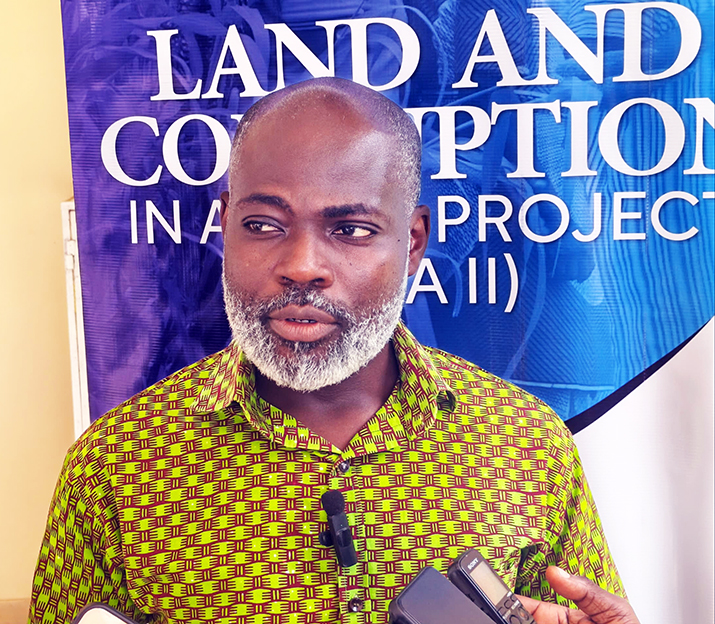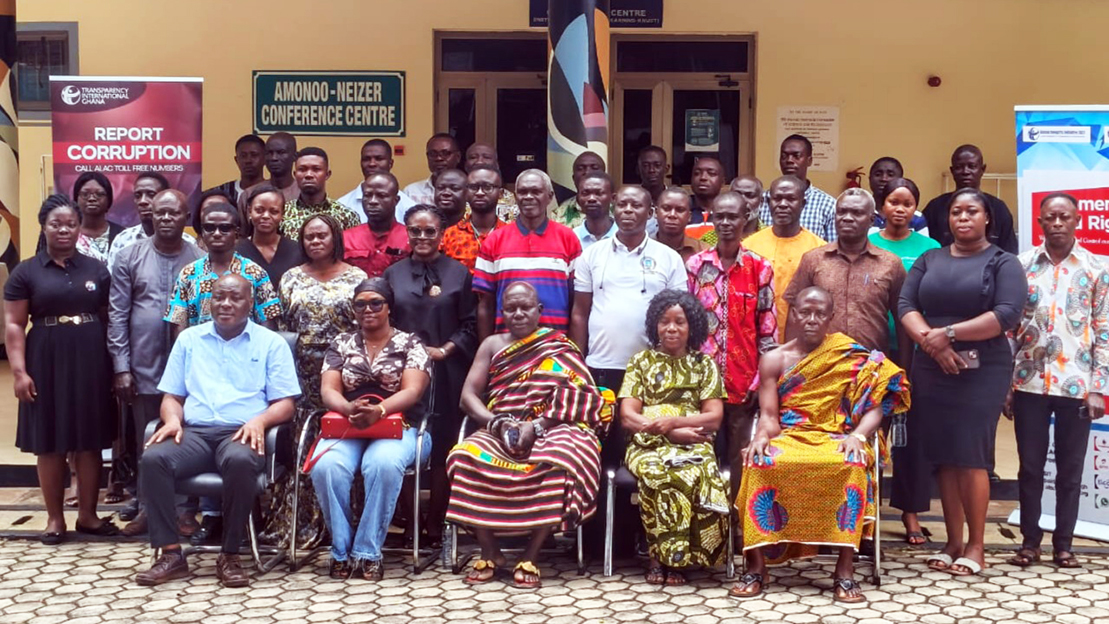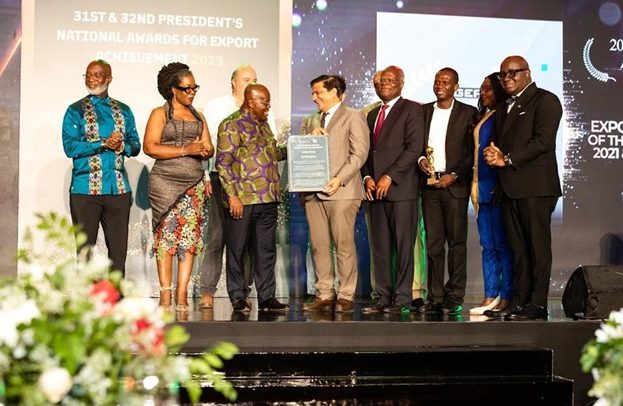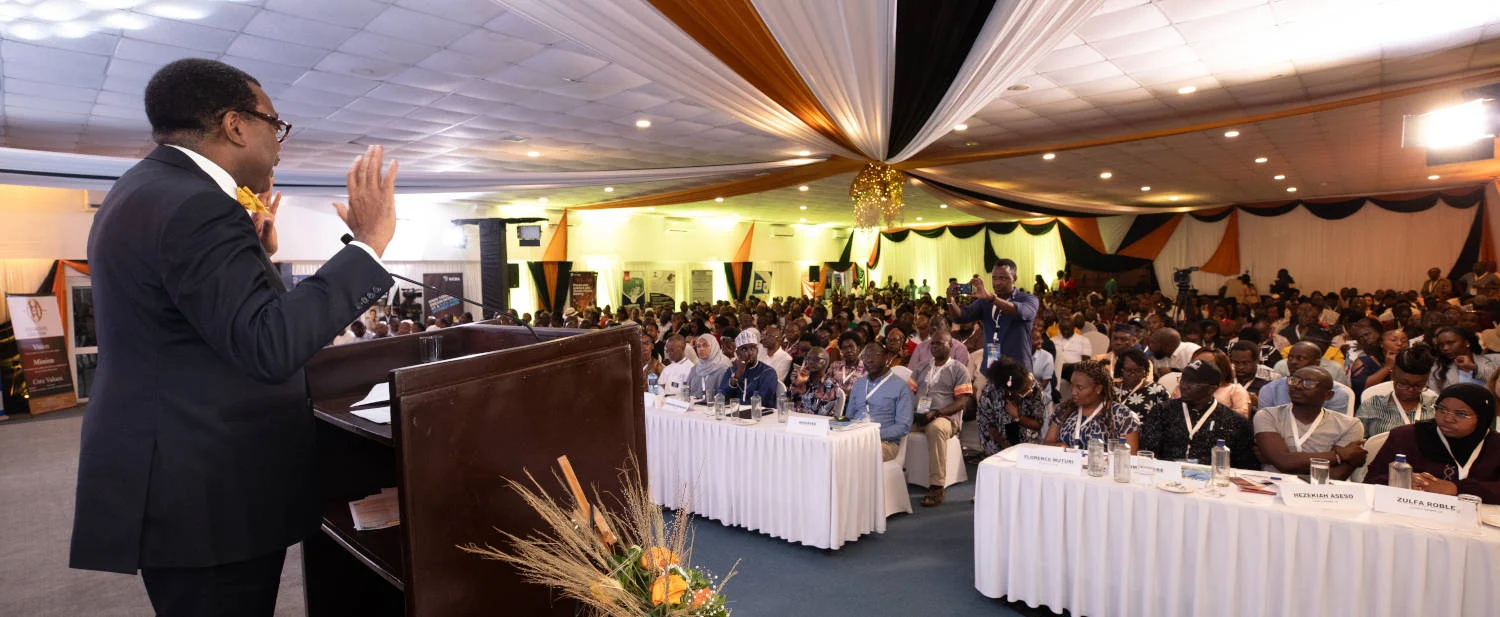
Transparency International Ghana (TI-G), in partnership with Lands Commission, has organised a national dialogue on land governance and anti-corruption for stakeholders in the private sector.

The strategic forum was aimed at engaging private sector stakeholders in discussions around Ghana’s land governance reforms, anti-corruption commitments and the implications of the Land Act, 2020 (Act 1036), as well as providing an opportunity to strengthen organisational compliance capacities, identify corruption risks in land-related processes and shape practical policy recommendations through collaborative dialogue.
The forum, which drew its participants from real estate developers and surveyors, Agribusiness firms and commercial farmers, financial and insurance institutions, construction and logistics companies, legal practitioners and land professionals, featured a series of interactive and outcome-driven activities.
Mr Michael H. Okai, Coordinator, Land and Corruption in Africa (LCA) Project of TI-G revealed the workshop was about risk mapping and assessment training for the private sector actors in the land sector, noting that the workshop became necessary because whenever policies are made, the private citizens are excluded from the process, resulting in land ownership issues.
He said the risk mapping assessment (a diagnostic tool) helps to identify the potential of corruption in the land sector for the private sector (farmers, communities, etc) and that the identified issues aid in “prioritising and mapping-out” to find solutions to these issues.
The Coordinator further indicated that prior to the implementation of LCA, hardly would one come by a research document (which provides evidence) that tackles land corruption in Ghana and Africa as whole.
He said the project (LCA) is having an enormous impartation following its instrumentality in the passage of the Land Act 2020 (Act 1036).
The Coordinator also revealed that his outfit (TI-G) had other processes of identifying potential corruption in all sectors of Ghana’s economy, including the Advocacy and Legal Advice Centre (ALAC) where victims and witnesses to corruption can assess, make complaints and also have their issues resolved, noting that “empowered citizens take empowered decisions”.

Mr. Prince Akwasi Sasu, Deputy Ashanti Regional Head, Civil and Mapping Division of Lands Commission indicated that the workshop was “important and dear” to Lands Commission (LC) because it advocates and educates, which are part of LC’s primary goals, noting that the Commission is supposed to educate and enlighten the public on land laws and the processes of land acquisition and registration.
He, however, stressed that due to financial constraints and other administrative issues, the Commission could not carry out such mandate frequently, hence the need to capitalise on the workshop to educate the public on their “rights, obligations, liabilities, and everything concerning land”.
Touching on the instrumentality of Land Act 2020 (Act 1036) in the fight against corruption, the Deputy Regional Head indicated that the Act entails a plethora of provisions that “guard against corruption and bribery” in land transactions, indicating that the preamble to the last page of the Act, guard against corruption in one form or the other.
He revealed that Section 277 of the Act highlights offenses and their respective punishments in all forms of land corruption and land-related illicit trading, citing that when an Officer of the Commission altered a land record from the Commission’s register, he or she could serve a number of years in penitentiary.
MrSasu further revealed that the Act also guards against the double-sale of land, explaining why the Commission could not register a piece of land in the name of two individuals or entities, even if the grantors (landowners) have issued allocation to that effect.
The Land Commission official further indicated that Sections 38, 47 and 97 of the Act gives protection to spouses, be it the man or wife, from taking advantage of, during their marriage period when a land was acquired, stressing that Act 1036 is “well-built and structured” and will go a long way in curtailing corruption to its barest minimum.
He also touched on the importance and usefulness of digitalisation in the fight against land corruption, following provisions for “electronic conveyancing”, which facilitate the reduction of human-interface as well as paperwork, noting that per the law, it is supposed to be initiated by an attorney via “the system”.
The Deputy Regional Head stressed that it also reduces the frequent visit to the Commission’s offices, thereby, reducing corruption, as seeing an Officer for assistance, which in itself is illegal and unwarranted by the law, is eliminated.
Mr.Sasu also revealed that in the shortest possible time, the Commission would be able to convert all hard copies of documents and maps into digital forms to fully embrace digitalisation and urged the government to make resources available to the Commission to facilitate the transition.
From Oswald Pius Freiku, Kumasi
The post Stakeholders in Private Sector schooled on land governance and anti-corruption issues appeared first on The Ghanaian Chronicle.
Read Full Story


















Facebook
Twitter
Pinterest
Instagram
Google+
YouTube
LinkedIn
RSS